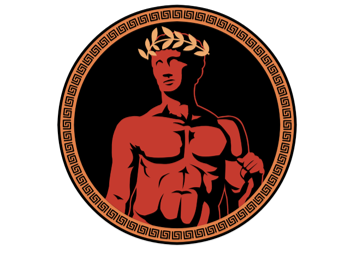|
In the attempt to improve the lives of others, the health and diet industry has mastered the art of exclusion. "you HAVE to do ______” you CAN'T do that avoid this, skip _________" These broad, black and white statements lack context, and typically omit a middle ground that could actually add quality to our lives. The consumption of alcohol fits perfectly into this category – especially in regards to fat loss, muscle gain and overall health. Having a flexible and social lifestyle hinges on your ability to practice moderation. Willpower is a finite resource. When you are too restrictive with something, the rebound is usually worse. And actually, in moderation, the consumption of alcohol may provide benefits. You can stop the restrictive-binge cycle by sensibly fitting alcohol into your life, instead of banishing it all together. Let’s talk about alcohol – the metabolism and how your body handles it, how it actually impacts your body composition and health, which may help to understand how alcohol fits into your life. INTRO TO ALCOHOL Ethanol (alcohol) is what gets you drunk. Although it isn’t labelled as a conventional macronutrient (protein, carbohydrates, fat), alcohol provides calories, on top of the calories coming from other macronutrients (usually carbohydrates) a drink may contain. Each gram of alcohol contains 7 calories. Interestingly, alcohol also has a high thermic effect of food (the same property that makes protein special), meaning it's energy value is actually smaller than 7 kcal/gram (1). However, it also doesn't fill you up like the other macronutrients, due to low satiety (2). But for pure alcohol, such as a 1 oz shot of liquor, energy comes from the alcohol alone. A rough guide for calories found in alcoholic beverages can be found below in Table 1. The metabolism of alcohol and how it impacts fat loss and muscle gain has been detailed elsewhere, but here are the key takeaways (4):
HEALTH BENEFITS A moderate consumption of alcohol has health benefits - although this not the message spread by the fitness and health community. Notably, population based data shows that moderate drinkers live longer than non-drinkers (8). This moderate consumption, usually defined as 1-3 drinks per day, influences health mainly through lowering the risk of heart disease and cardio-protective effects (9–15). Furthermore, moderate alcohol consumption improves insulin sensitivity and lowers blood lipids (16,17). Anyone concerned with body composition, may be wary of consuming alcohol for the impact on hormonal status, recovery and protein synthesis. However, all research conducted in this area, although limited, has shown the impact of moderate alcohol consumption to be insignificant (18–20). Unless you're participating in prolonged, daily alcoholism (and if so, you probably wouldn’t be reading this), you don't have anything to worry about. LET’S GET PRACTICAL At this point, you’ve learned although alcohol isn’t a super nutrient, drinking in moderation isn’t going to ruin your progress either. But, just like anything else – we need to compromise. Since alcohol contains calories, excessive drinking can really increase your calorie intake. For the most part, drinking light beer, dry wine (pinot grigio, cabernet sauvignon etc), and spirits mixed with low or no calorie mix most of the time is advisable if your goal is to control calories (fat loss). Sweet wines (Riesling, desert wine), beer (normal and some high alcohol by volume craft beer) and spirits with normal mix should be chosen less, unless calories are at a premium (weight gain). Context is always important – there is always a time and place. If you are serious about achieving a goal and your close to the deadline, it’s good to go into a non-celebratory drinking situation with a plan. Be realistic. For example, deciding to drink 1-2 drinks, making good decisions and being content with that is moderate. In other situations – like no pending goals, celebrations and holidays you can be more relaxed. For my flexible dieting (tracking) friends and clients, here’s how to handle alcohol in your targets: For alcohol, since alcohol will have calories that won’t be included in conventional macronutrients, when you drink to you need to displace out the alcohol calories from your targets. When you log a drink, the carbohydrates included in the nutritional information go towards your targets, but the remaining alcohol calories still need to be accounted for. The best way to balance this is to account for the calories from your carbohydrate and fat targets (not protein) – removing 1 gram of carbohydrate for 4 calories or 1 gram of fat for 9 calories, or combination of both. For example, a light beer is usually around 120 kcal but has 4 grams of carbohydrates (20 calories) included towards your targets. So the remaining 100 kcal need to displaced. So for every light beer, take off 25 grams of carbs (100 kcal) or 11 grams of fat (99 kcal), or some combination. Doesn’t need to be perfect, but this balancing will keep you on track. SUMMARY Here’s what we’ve I've learned in my own experience and working with countless others: alcohol in isolation isn't going to make or break your diet or health. It's everything else that happens, in addition to drinking or not drinking, that influences your health. Drink in moderation, find the middle ground and improve your life. - Dr. Marc Morris
References
1. Suter, P. M., Jéquier, E. & Schutz, Y. Effect of ethanol on energy expenditure. Am. J. Physiol. 266, R1204–1212 (1994). 2. Calissendorff, J., Danielsson, O., Brismar, K. & Röjdmark, S. Alcohol ingestion does not affect serum levels of peptide YY but decreases both total and octanoylated ghrelin levels in healthy subjects. Metabolism. 55, 1625–1629 (2006). 3. Aragon, A. A Musclehead’s Guide to Alcohol. (2008). at <http://www.t-nation.com/free_online_article/sex_news_sports_funny/a_muscleheads_guide_to_alcohol_1> 4. Berkhan, M. The truth about alcohol, fat loss and muscle growth. (2010). at <http://www.leangains.com/2010/07/truth-about-alcohol-fat-loss-and-muscle.html> 5. McDonald, L. Nutrient Intake, Nutrient Storage and Nutrient Oxidation. at <http://www.bodyrecomposition.com/nutrition/nutrient-intake-nutrient-storage-and-nutrient-oxidation.html> 6. Siler, S. Q., Neese, R. A. & Hellerstein, M. K. De novo lipogenesis, lipid kinetics, and whole-body lipid balances in humans after acute alcohol consumption. Am. J. Clin. Nutr. 70, 928–936 (1999). 7. Foxx, J. & Pain, T. Blame it (on the alcohol). (J Records, 2008). 8. Gaziano, J. M. et al. Light-to-moderate alcohol consumption and mortality in the Physicians’ Health Study enrollment cohort. J. Am. Coll. Cardiol. 35, 96–105 (2000). 9. Romeo, J., Wärnberg, J., Díaz, L. E., González-Gross, M. & Marcos, A. Effects of moderate beer consumption on first-line immunity of healthy adults. J. Physiol. Biochem. 63, 153–159 (2007). 10. Romeo, J. et al. Changes in the immune system after moderate beer consumption. Ann. Nutr. Metab. 51, 359–366 (2007). 11. Romeo, J., González-Gross, M., Wärnberg, J., Díaz, L. E. & Marcos, A. Effects of moderate beer consumption on blood lipid profile in healthy Spanish adults. Nutr. Metab. Cardiovasc. Dis. NMCD 18, 365–372 (2008). 12. Sierksma, A., van der Gaag, M. S., Kluft, C. & Hendriks, H. F. J. Moderate alcohol consumption reduces plasma C-reactive protein and fibrinogen levels; a randomized, diet-controlled intervention study. Eur. J. Clin. Nutr. 56, 1130–1136 (2002). 13. Liu, L., Wang, Y., Lam, K. S. L. & Xu, A. Moderate wine consumption in the prevention of metabolic syndrome and its related medical complications. Endocr. Metab. Immune Disord. Drug Targets 8, 89–98 (2008). 14. Das, S., Santani, D. D. & Dhalla, N. S. Experimental evidence for the cardioprotective effects of red wine. Exp. Clin. Cardiol. 12, 5–10 (2007). 15. Lugasi, A. & Hóvári, J. Antioxidant properties of commercial alcoholic and nonalcoholic beverages. Nahr. 47, 79–86 (2003). 16. Davies, M. J. et al. Effects of moderate alcohol intake on fasting insulin and glucose concentrations and insulin sensitivity in postmenopausal women: a randomized controlled trial. JAMA J. Am. Med. Assoc. 287, 2559–2562 (2002). 17. Arima, H. et al. Alcohol reduces insulin-hypertension relationship in a general population: the Hisayama study. J. Clin. Epidemiol. 55, 863–869 (2002). 18. Välimäki, M., Tuominen, J. A., Huhtaniemi, I. & Ylikahri, R. The pulsatile secretion of gonadotropins and growth hormone, and the biological activity of luteinizing hormone in men acutely intoxicated with ethanol. Alcohol. Clin. Exp. Res. 14, 928–931 (1990). 19. Koziris, L. P., Kraemer, W. J., Gordon, S. E., Incledon, T. & Knuttgen, H. G. Effect of acute postexercise ethanol intoxication on the neuroendocrine response to resistance exercise. J. Appl. Physiol. Bethesda Md 1985 88, 165–172 (2000). 20. Sierksma, A. et al. Effect of moderate alcohol consumption on plasma dehydroepiandrosterone sulfate, testosterone, and estradiol levels in middle-aged men and postmenopausal women: a diet-controlled intervention study. Alcohol. Clin. Exp. Res. 28, 780–785 (2004). ***Please excuse mixture of citation styles, references indicated above in brackets i.e. (1).
0 Comments
|
Marc Morris PhD CSCS Dr. Marc is an online nutrition and strength coach. Marc leverages his athletic experience and credentials in biochemistry and human nutrition to provide evidence-based but practical recommendations to clients and the fitness community. Archives
February 2022
Categories |
Services |
Company |
|
|
© POLYHEALTH NUTRITION AND FITNESS INC. 2021. ALL RIGHTS RESERVED.
|
Website Design by My Personal Trainer Website
|




 RSS Feed
RSS Feed